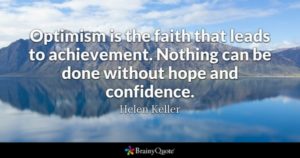Becoming deaf & blind as an infant in the 19th Century, in her biography Helen Keller said she lived, “at sea in a dense fog.” Despite great odds against her, she successfully navigated a series of remarkable events.
+ Keller’s mother was so inspired by a segment in Charles Dickens’ “American Notes for General Circulation” to send her husband with Helen to Baltimore to find physician J. Julian Chisholm.
++ Chisholm referred the Kellers to Alexander Graham Bell, who was working with deaf children at the time.
+++ Bell directed them to the Perkins Institute for the Blind in South Boston.
++++ Michael Anagnos, the school’s director, asked 20-year-old former student Anne Sullivan to become Keller’s teacher.
+++++ Keller and Sullivan worked together for 49 years.

Among her many accomplishments, Helen Keller was the first deaf & blind person to earn a Bachelor of Arts degree, and wrote her autobiography at age 22 while attending college. As a suffragette and lifelong political advocate, she was 40 years old in 1920, when the 19th amendment was ratified and granted women the right to vote. When she was 84 years old, LBJ awarded her the Presidential Medal of Freedom.
One of the most profound facts of Keller’s story is the connection that her mother made through the Dickens’ story, American Notes. This story was a chronicle of Dickens’ expedition through America in the mid-19th Century, 20 years before the Civil War, and it was far from a glowing commentary of American society at the time. As a loyal British subject, it was well known that Dickens included many harsh criticisms of American cultural norms and practices. Knowing this, Mrs. Keller could have chosen to take personal offense against many of the “faults” from Dickens’ perspective.
Imagine Helen’s story, had her mother lacked the courage to leave the shore, and wade into deep waters that challenged her very lifestyle.
Fortunately, Helen’s mother was willing to expose herself to the contrarian in Dickens, and she was rewarded with finding the story of Laura Bridgman. A deaf and blind American woman who had prospered through formal education in Boston. This story inspired Mrs. Keller to send her husband and young daughter on their trip from Alabama to Baltimore in search of Dr. Chisholm. Because Dickens included the good along with his criticisms, and because Mrs. Keller was brave enough to expose herself to another perspective, thus began the sequence of events that enabled Helen to overcome certain odds.
As the saying goes, “You can never cross the ocean unless you are willing to leave the shore.” We don’t always know the impact of who we meet, or the words we choose; so, choose wisely, and go nonetheless. Go bravely. Go confidently. One day, your path may be lit by a reflection of the light that you sent into the world. Make a conscious effort to shine brightly and cut through the fog. Be a beacon of hope to others.
Still the mind. Rejuvenate the body. Cultivate the soul. #whyyoga
